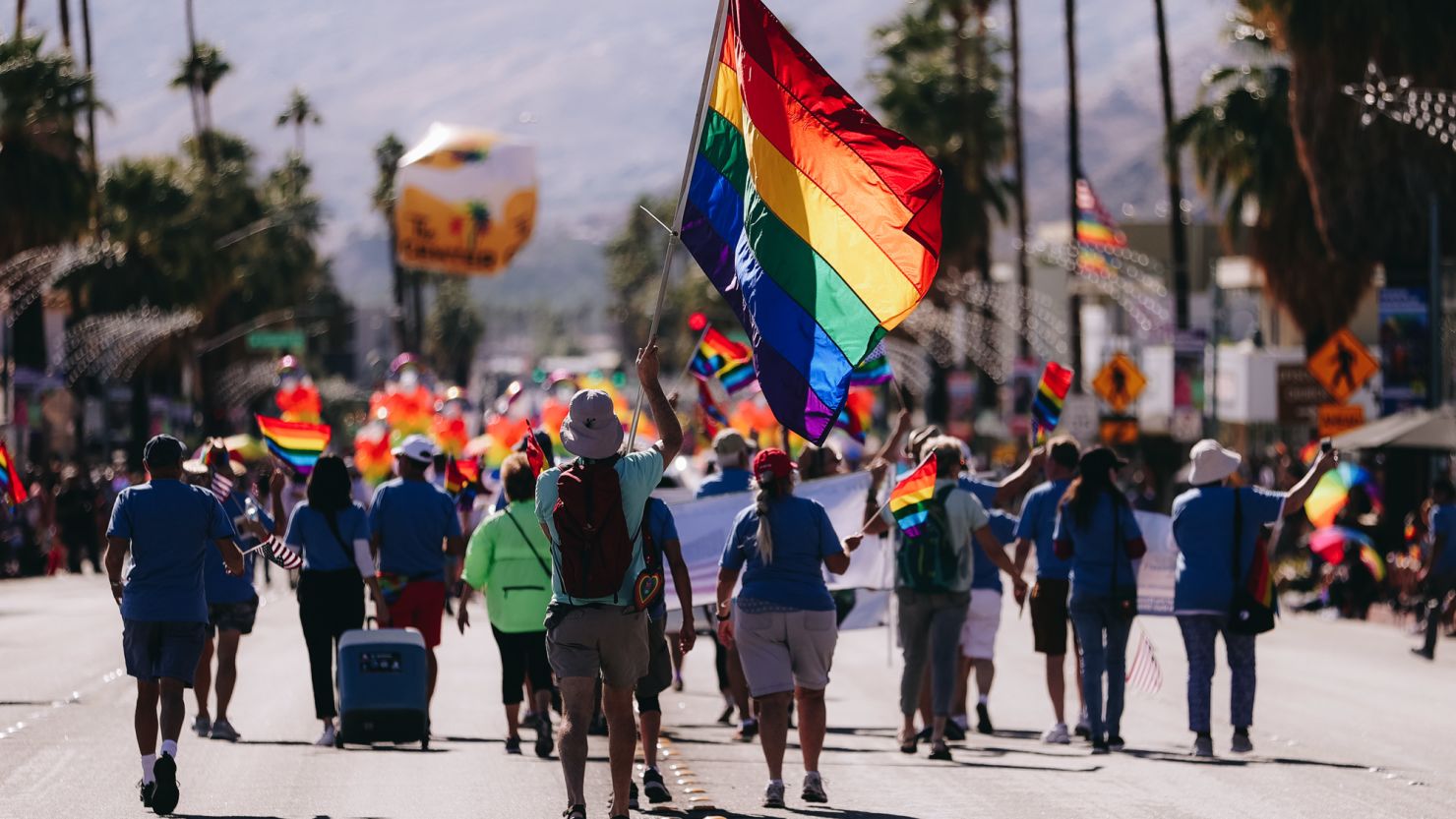More adults in the US say they identify as LGBTQ than they did a decade ago, according to a new Gallup poll, a trend largely propelled by Gen Z adults.
The percentage of adults who told Gallup they identify as LGBTQ has doubled since 2012, per the polling firm, from 3.5% of Americans then to 7.1% of Americans in 2021.
The rise can be attributed to Gen Z, according to Gallup – about 21% of adults born between 1997 and 2003 identify as LGBTQ. Meanwhile, 10.5% of millennials, the generation that includes adults born between 1981 and 1996, identify as LGBTQ, per the poll, and the percentages dwindle among the preceding generations.
Among LGBTQ adults in the US, more than half of them – nearly 57% – said they were bisexual, according to Gallup’s poll. That encompasses about 4% of all US adults. Gallup reported that 20.7% of LGBTQ respondents identified as gay, 13.9% as lesbian and 10% as transgender.
Bisexuality is the most common LGBTQ identity among members of Gens Z and X and millennials, Gallup reported, with 15% of all Gen Z adults saying they were bisexual.
The results are a sign of increasing LGBTQ rights and representation, an expert says
It makes sense that a greater percentage of Gen Z identifies as LGBTQ compared to older generations, said Sharita Gruberg, vice president of LGBTQI+ Research and Communications Project at the Center for American Progress. Gruberg noted that the world in which the younger generation lives is one where same-sex marriage is legal nationwide, as well as one where awareness and visibility of orientations and identities other than heterosexual and cisgender continues to grow.
“Gen Z has grown up at a time when stigma around LGBTQ identities is on the decline and rights are expanding,” said Gruberg, who was not involved in the poll. “As greater awareness about the diversity of sexual orientations and gender identities grows, and as stigma surrounding LGBTQ identity lessens, we’re likely to see more people self-identify as LGBTQ.”
Still, she said, LGBTQ rights aren’t guaranteed for Gen Z. Many states don’t have non-discrimination measures in place for LGBTQ residents, she said, and a 2020 Center for American Progress study found that over half of LGBTQ people hid their relationships to avoid discrimination. The Equality Act, which would ban discrimination based on gender identity, sexual orientation and sex for employment and housing opportunities, among others, hasn’t been passed despite members of Congress for years introducing versions of the legislation.
Last year also saw the largest slate of anti-LGBTQ bills in recent US history, according to the Human Rights Campaign, with more than half of states introducing legislation that targeted LGBTQ residents, particularly transgender minors. This year’s roster of bills may surpass last year’s record, LGBTQ advocates told CNN earlier this month.




